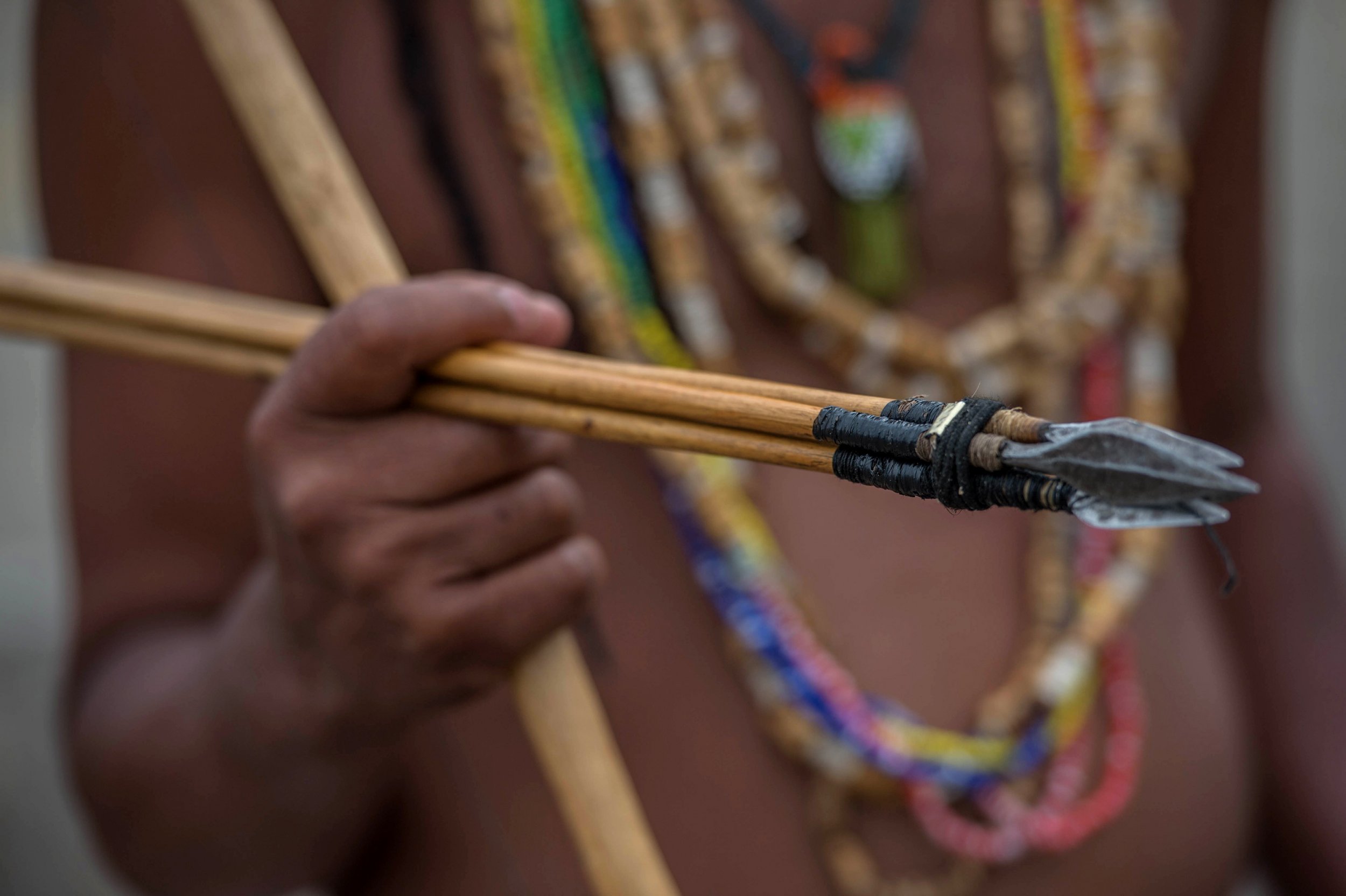
An American citizen is believed to have been killed after illegally traveling to an isolated island in the Bay of Bengal populated by uncontacted tribes.
According to The Associated Press, Indian police said Wednesday that an American man had died while visiting North Sentinel Island, access to which is tightly restricted by the Indian government.
AFP named the dead man as John Allen Chau, 27, and reported that he was a preacher intending to convert the Sentinelese. The agency quoted local sources who said the American had been killed on his second attempt to reach the island, his first effort having failed on November 14.
"He was attacked by arrows but he continued walking," one source explained. "The fishermen saw the tribals [sic] tying a rope around his neck and dragging his body… They were scared and fled but returned next morning to find his body on the seashore."
The Sentinelese people fiercely resist contact with outsiders. They prefer to live alone on the small forested landmass, which is part of the Andaman and Nicobar Islands archipelago in the Indian Ocean, more than 600 miles from India.
Police officer Vijay Singh said seven fishermen had been arrested for helping the American visit the island, where multiple outsiders have been killed by the indigenous tribe. Singh noted police were still in the process of recovering the body.
Singh said the dead man was killed on Saturday, though did not offer any further information. He said the police investigation into the death was ongoing.
Kathleen Hosie, a spokeswoman at the U.S. consulate in Chennai, the capital of India's southern Tamil Nadu state, said the government was aware of the reports but declined to comment further due to privacy considerations.
The exact number of indigenous people living on North Sentinel Island is not known, though it is thought to be decreasing. The Indian government maintains a three-mile exclusion zone around the island to protect the tribe there. Nonetheless, poachers are known to fish illegally in the coral-rich waters surrounding North Sentinel.
The Indian government conducts frequent observation missions to check on the well-being of the islanders. After the 2001 Indian Ocean tsunami, for example, a helicopter flew over the island to assess any damage. Braving the customary hail of projectiles offered for most overflights, the crew saw that the tribe had survived.
Survival International—a human rights organization that campaigns for the rights of indigenous tribal peoples—released a statement noting the confrontation should never have been allowed to occur.
Director Stephen Corry said the Indian government had recently eased restrictions on foreign tourists, allowing them to visit a host of inhabited and uninhabited islands—although not including North Sentinel. Corry suggested this move "sent exactly the wrong message, and may have contributed to this terrible event."
Outside contact with the islanders has been sporadic and often violent. In 2006, two Indian fishermen—Sunder Raj and Pandit Tiwari—washed up on the shoreline after their boat drifted too close to the island while fishing for mud crabs. Both were killed by the Sentinelese. A helicopter attempted to retrieve their bodies but was driven off by arrows. The Indian government has not sought to punish anyone for the murders.
The first modern peaceful contact was achieved by Indian anthropologist Trilokinath Pandit in 1991. The academic was able to win the islanders' trusts using gifts of coconut and iron chunks. In 1993, he told The Independent that while the locals must be protected, permanent isolation may not be sustainable.
Pandit also defended the Sentinelese against their violent reputation. "They're cautious, that's all," he said. "They want to defend themselves against outsiders."
Corry concurs, and noted: "The Sentinelese have shown again and again that they want to be left alone, and their wishes should be respected. The British colonial occupation of the Andaman Islands decimated the tribes living there, wiping out thousands of tribespeople, and only a fraction of the original population now survive. So the Sentinelese fear of outsiders is very understandable."
"Uncontacted tribes must have their lands properly protected. They're the most vulnerable peoples on the planet," Corry added.
He continued, "Tribes like the Sentinelese face catastrophe unless their land is protected. I hope this tragedy acts as a wake-up call to the Indian authorities to avert another disaster and properly protect the lands of both the Sentinelese, and the other Andaman tribes, from further invaders."
This article has been updated to include comments from Survival Internaitonal.
Uncommon Knowledge
Newsweek is committed to challenging conventional wisdom and finding connections in the search for common ground.
Newsweek is committed to challenging conventional wisdom and finding connections in the search for common ground.
About the writer
David Brennan is Newsweek's Diplomatic Correspondent covering world politics and conflicts from London with a focus on NATO, the European ... Read more
To read how Newsweek uses AI as a newsroom tool, Click here.








